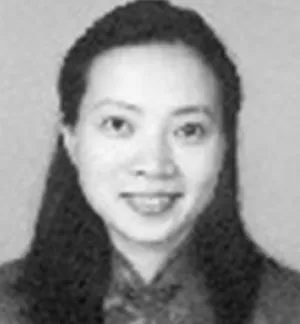Note
This op-ed was reprinted in The International Herald Tribune on February 25, 2008.
EARLIER this month, when China's worst snowstorms in more than 50 years hit the country just as millions were traveling long distances to join their families for the Lunar New Year, I did not relax in my American home until my parents landed in Shenzhen for a holiday reunion with my sister. They had been stranded for eight days by the heavy snow in Southern China.
They, like tens of millions of Chinese affected by the snowstorms, showed the spirit of the Chinese people: resilience, crisis mobilization, self-sacrifice, and strong family values. Having lived in the United States for years exposed to the spirit of individual heroism exemplified by Superman and Spiderman in American culture, I rediscovered the collective heroism of the Chinese people. It was reassuring to see that spirit in China. Like many of my countrymen, I had worried that in China's market-oriented economy, materialism and individualism might have supplanted the spirit of traditional collectivism. Fortunately, that was not the case.
The Lunar New Year, also called the Spring Festival in China, is like Christmas, a holiday when people rush back for annual reunions with their families, and a time for one of the world's biggest mass movements of humanity. The vulnerability of China in such an unprecedented crisis was exposed: Roads and railways were blocked and power grids were damaged, causing a massive blackout and supplies shortage, and stranding tens of millions of travelers.
In facing the disaster, China lacked the well-established infrastructure, an adequate crisis management system, and well-trained disaster-relief professionals like in Western countries. Yet it was the ordinary people who made up for those deficiencies. The solidarity and cooperation of the Chinese people, which the government swiftly and effectively mobilized, restored the country to normal operations quickly. Some foreign observers exclaimed that another country affected by a disaster of the same scale would have been paralyzed.
More than 2 million soldiers, as well as militia, army reservists, and police officers, were deployed to remove snow and ice from the roads and help provide emergency supplies, including hot food and water, to stranded travelers. Employees of power and water plants worked under extremely dangerous conditions to maintain utilities and repair damaged transmission lines and transformer substations. Transportation workers raced to deliver relief materials to disaster-hit areas. Volunteers and Chinese overseas donated money and supplies through various charity channels.
The nation's leaders also became part of this collective heroism. Spending the holiday away from home, President Hu Jintao entered the Datangtashan coal mine to meet those who had worked overtime in temperatures of minus-4 degrees to increase coal supplies and boost power. Premier Wen Jiabao flew to Guangzhou and other cities to comfort stranded travelers, and he had New Year's Eve dinner with students stranded by the snowstorm at Jiangxi University of Finance and Economics.
Many Chinese gave up their own reunion with families during the Spring Festival just to help tens of millions of others go home and enjoy the holiday.
No matter how long or how arduous the journey, Chinese people always struggle to find a way home during the New Year. For many of them, like the migrant worker, the single New Year's Eve dinner with families is the light at the end of the tunnel following a year of hard work. Such strong family ties explain the reason why, despite the long delay and all the inconveniences caused by the storms, people still waited tirelessly and hopefully in the stations. By understanding the importance of a family reunion one appreciates the sacrifice made by those who missed their own reunions to help others.
All the efforts paid off. By New Year's Eve, the majority of previously stranded travelers in all major transportation hubs, including the 800,000 passengers at the Guangzhou train station, had embarked on voyages home. Some foreigners commented on this as "magic." Water and electricity had been gradually restored in most of the heavily hit areas. Watching afar from across the Pacific Ocean, I felt touched by and proud of their spirit.
My parents said they realized they had been so spoiled by the improvement of life in China that they found the various inconveniences very difficult. It is good that the disaster reminded them and other Chinese people of their country's vulnerabilities as well as the spirit they possess to overcome them and strive for a better future.
Anne Wu is an associate at the Belfer Center for Science and International Affairs at Harvard University's Kennedy School of Government.
Wu, Xiaohui (Anne). “In China, a Beacon of Heroism.” The Boston Globe, February 25, 2008





